Transcend SSD340 (256GB) Review
by Kristian Vättö on August 4, 2014 5:00 AM ESTRandom Read/Write Speed
The four corners of SSD performance are as follows: random read, random write, sequential read and sequential write speed. Random accesses are generally small in size, while sequential accesses tend to be larger and thus we have the four Iometer tests we use in all of our reviews.
Our first test writes 4KB in a completely random pattern over an 8GB space of the drive to simulate the sort of random access that you'd see on an OS drive (even this is more stressful than a normal desktop user would see). We perform three concurrent IOs and run the test for 3 minutes. The results reported are in average MB/s over the entire time.
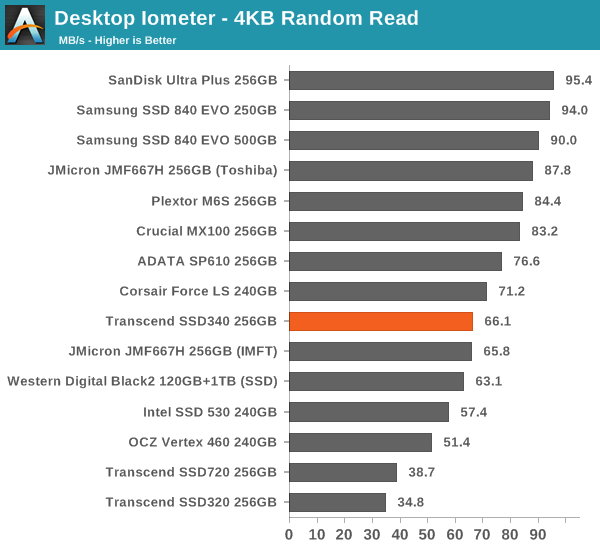


Random performance is okay and similar to the other JMF667H SSDs. Queue depth scaling has never been JMicron's strength but then again typical client workloads do not usually go above queue depth of 5 anyway.
Sequential Read/Write Speed
To measure sequential performance we run a 1 minute long 128KB sequential test over the entire span of the drive at a queue depth of 1. The results reported are in average MB/s over the entire test length.
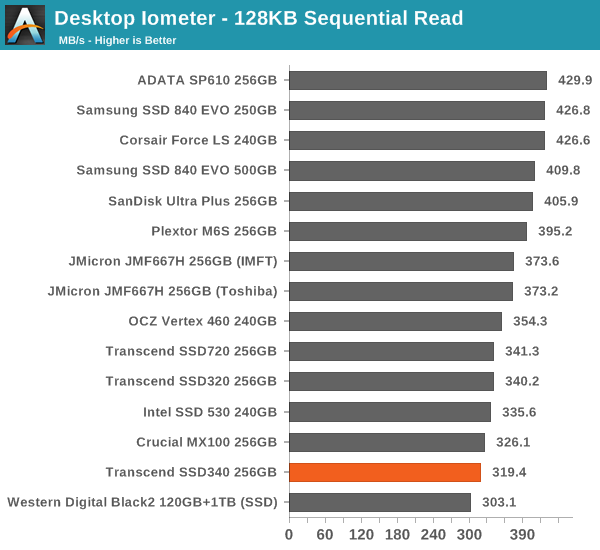
Sequential performance leaves a lot to be desired. Especially write performance is poor for a 256GB drive.
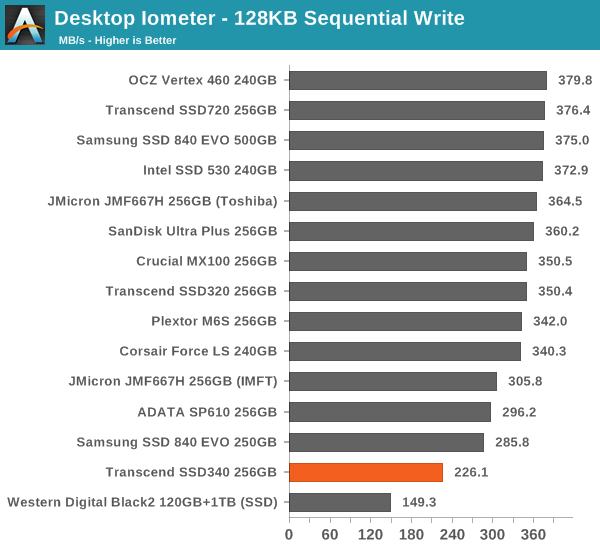
AS-SSD Incompressible Sequential Read/Write Performance
The AS-SSD sequential benchmark uses incompressible data for all of its transfers. The result is a pretty big reduction in sequential write speed on SandForce based controllers.
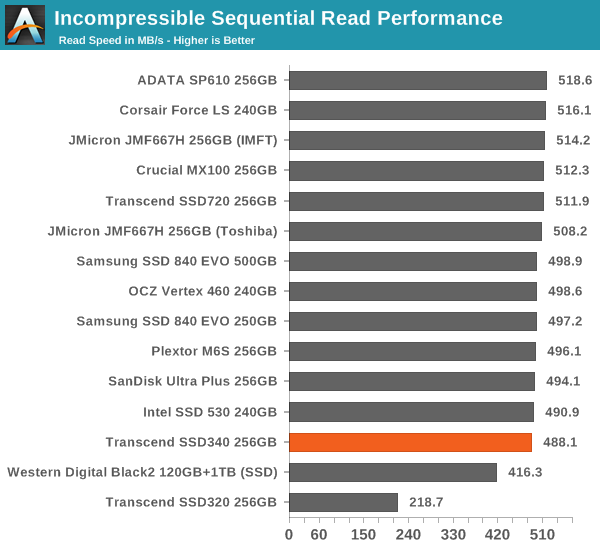
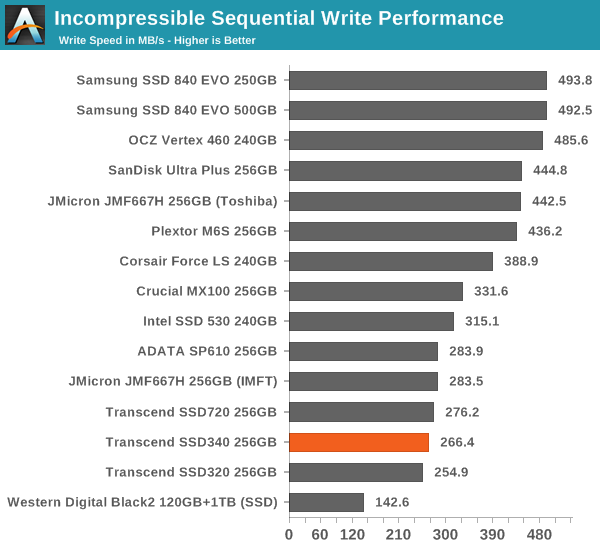










57 Comments
View All Comments
jabber - Monday, August 4, 2014 - link
Hmm for most general use its reads not writes. So I doubt most normal folks would notice.hojnikb - Monday, August 4, 2014 - link
Again, install OS (win to go is pretty easy to setup for example) to a cheap flashdrive and come back :)Even though there is plenty more reads than writes in client world, its still important that random writes don't sux, because the moment OS will try to write something is the moment everything will freeze (think jmicron 602)
TheWrongChristian - Monday, August 4, 2014 - link
Random writes suck if they block reads. That was the problem with the old jmicron controllers, a high latency write would block everything including reads.With good command queuing, and non-blocking writes, reads should still be low latency, and for boot and application startup, it's read latency that counts. The OS can mask write latency pretty well, to the point that you're unlikely to notice much difference on a desktop.
On a server, you're much more likely to notice write latencies however. Think database servers writing log data, or a file server waiting for a file write before acknowledging a sync. But even there, a file server can batch write file updates from many clients (or use the sequential journal for data) and the database similarly decomposes synchronous writes to sequential log files.
So all in all, so long as writes don't block unrelated reads, you should be fine.
jabber - Tuesday, August 5, 2014 - link
As it happens I rebuilt a Sony all in one PC with just one of the exact drives in this review. Worked fine. Installed swiftly with no issues. There are benchmarks...and then there is using it in the real world and often real world is very different to those.Friendly0Fire - Tuesday, August 5, 2014 - link
The point is that according to the table in this review you can get a flat-out better SSD *for the same price*, unless you're looking for the 64gb size in which case a measly $20 will upgrade to 128gb. The value proposition just isn't there.jabber - Wednesday, August 6, 2014 - link
Well I got mine for £65 and the next cheapest 200+GB SSD was £85 so was worth it. Thats pounds...not dollars. Thats a $32 difference for very little difference in general usage.MrFixitx - Monday, August 4, 2014 - link
I am honestly not at all surprised by these results. Transcend has for years been the maker of "value" NAND based products. From camera memory cards to usb thumb drives.I have been burned by their compact flash cards before and would not recommend their flash based products for anything where reliability is critical.
velanapontinha - Monday, August 4, 2014 - link
Hi, Kristian.Any chance of reviewing the SSD370 line anytime soon? These are dirt cheap and should prove a lot better overall than the SSD340.
Kristian Vättö - Monday, August 4, 2014 - link
I don't have the drive yet but it's certainly on the list of SSDs to review.saliti - Tuesday, August 5, 2014 - link
What about Samsung 845 DC Pro review?